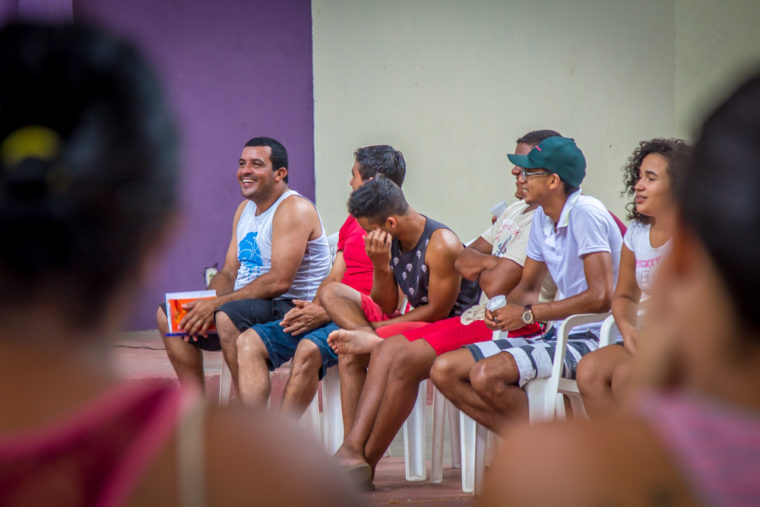When we start interacting with other people we start defining roles. Who has the most power in this relationship? For example, we might think that “The customer is always right” giving the customer the most power, but if the store manager doesn’t agree this may cause a conflict. If you go to a doctor for help, but don’t follow the doctor’s prescription, this relationship becomes awkward.
If a well-meaning Christian wants to share their faith with a person he considers “lost”, the Christian may assume they have the power (knowledge, spiritual authority). If the “lost”person agrees then the power-over methods of evangelism may work. But what about those “lost” persons who do not agree? Many people feel betrayed by other Christians and how they represent God, or they consider Christianity irrelevant. These people still may believe in God, or the idea of God.
Christians may fear the opposite problem, that their “lost” friend will consider them a professional, but they know they are not experts. This happens in many areas of life. Li (2015) asserted that “Leaders fear engagement because they’re convinced they may not have all the answers their followers need” (p. 63).
One Christian solution to this problem is try to teach leaders everything. This can be a nine-month leadership class, or a four-year degree. As this falls short you can keep upping the bar. Many denominations require pastors to have a Master of Divinity, or PhD degrees. Other groups found that church planting multiplies rapidly even if the leaders know just a little bit more than the followers. Many hierarchical movements use this method effectively.
Shein (2009) lists some challenges with the Professional Helper model.
1. Has the Professional Helper correctly diagnosed the Client’s problem / situation?
2. Has the Professional Helper clearly communicated in a way that the Client understands?
3. Has the Professional Helper correctly assessed the capacity of the Client to follow the instructions?
4. Has the Professional Helper completely thought through the possible consequences to the Client if the Client heeds the advice?
5. Does the Professional Helper know with absolute certainty the right thing to do in the Client’s exact situation?
Some young leaders think that by acting like they know stuff, they will actually get it right sometimes. In my experience, often the less seasoned a leader is, the more sure they are of their council. They want to act like and to be considered Professionals. Young leaders are often quick to provide council to situations that are way over their pay grade.
Other people hesitate to step out in leadership because they never feel ready. When I was a young child I thought that by the time I was 30, like my dad, I would know everything, like I thought he did. When I was 30 I got married. I thought that by the time I was 58, like my dad, I would know everything I need to know about life, like I thought he did. Now that I am 56 I am learning to live with the questions.
Preparing, recognizing, and releasing leaders are often bottlenecks to church-planting movements.
What if we could learn to create environments where God could lead His people?
One man recently told me he liked the leader-has-the-power method because it is biblical. He quoted the following verse. In fact, I think he quoted the verse three times in a row, in a loud voice, in rapid succession.
1 Cor. 11:1 Follow my example, as I follow the example of Christ.
I understand that this man is following his leader, and he expects his followers to follow him. He is a sincere Christian who can quote scriptures and references far better than me. We looked at another scripture, a quote by Jesus.
John 6:45 It is written in the Prophets: ‘They will all be taught by God.’ Everyone who has heard the Father and learned from him comes to me.
I am curious: What if this man gets a different type of leader? What if his leader learns to give away control, as in the Discovery Model. Will this man also give away control, and will he encourage his followers to give away control? Could this be just as biblical?
I suggest there are two principles at play here.
1. Character – Are we willing to be transparent Christians? For example, will we have people stay in our homes with us to observe how it really works as we interact with our families and life situations?
2. Control – We naturally like control. Hierarchies emphasize submission doctrines. If everyone agrees to the power structure it can work. Letting God lead His people is messier. Sometimes it feels like the difference between cowboys driving cattle and shepherds leading sheep. Both are getting their group to the desired location.
Often I find God’s priorities for getting a life in order are different than mine.
Am I willing to be a transparent learner and to help others let God be the Professional Leader?
Do you have any experience with this?
References
Li, C., (2015) The engaged leader: A strategy for your digital transformation. Wharton Digital Press, Kindle Edition.
Schein, E., (2009) Helping: How to offer, give, and receive help (pp. 48-53). Berrett-Koehler Publishers. Kindle Edition.



















